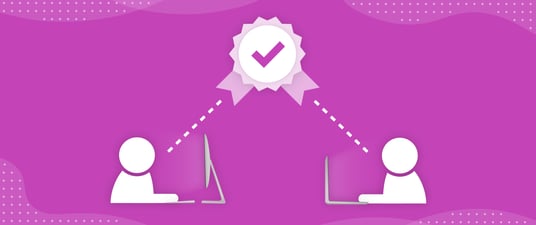This year’s Online Test Conference was unique. The event has always been virtual and fostered discussions online; they are ahead of the curve in our current COVID-19 climate. Online Test Conference was an excellent opportunity to connect with testers all over the globe, from home. While the topics varied, we thought these takeaways from the conference are worth sharing.
Testing Practices are Evolving
Alan Page kicked off the conference with stories of modern testing. The conversation aligned well with discussions we’re having with mabl customers and how enterprises are shifting their testing practices in 2020. Some of the principles of modern testing highlighted by Alan are:
- The Customer is King: It’s time to end the “works on my machine” discussion. Customer experience has a direct impact on company revenue and customer retention, so running customer-centric tests is key to developing a quality product and positively impacting CX.
- Everyone Can Test: It used to be that only QA teams could test, and it was typically done in staging and production environments. With the adoption of CI/CD and Agile, teams can’t afford to test so late in development. New tools enable developers to test in their workflow while they’re building code.
- Lead a Quality Culture: Just like everyone can test, everyone is responsible for quality. Keeping open communication between QA, dev, and product is key to elevating the importance of product quality.
Testing isn’t 9-to-5
Michael Phelps is the most decorated olympian of all time, but many people only see him as that. What’s lost on many is all of the work Phelps puts in behind the scenes, including hours of practice, workouts, and managing nutrition. Mike Lyles highlighted that the same principle applies if you want to be a great tester.
This doesn’t mean working 70-80 hours weeks, but it does mean picking your head up from day-to-day testing activities. Lyles shared tips on what it takes to become a world-class tester:
- Test everything: test things outside the product you work on to expand your skills.
- Engage with the community: Attend in-person and virtual conferences, ask questions, follow people you respect on social, and engage in discussions. You will learn from other perspectives.
- Start reading: Many conference speakers have their own books, podcasts, or blogs. Make a habit out of reading more industry material.
By engaging with testers who have different experiences and perspectives you’ll become a more well-rounded tester and avoid falling into the “it’s always been done this way” trap.
Nurture a healthy culture on your team
A great workplace culture helps to foster better teamwork and helps improve overall team morale. And a healthy culture is more important than ever, thanks to COVID-19. Managers need to lead with empathy and recognize it’s ok to be vulnerable. By fostering an environment where employees feel supported, it will pay in spades in the form of higher employee retention, morale, and productivity.
To draw parallels, Conor Fitzgerland shared what the testing community can learn from the airline industry. Aviation has rigorous quality standards. Pilots are expected to act selflessly, to trust each other, and have discipline in following strict procedures. If testing teams can expect trust and skill from each other and act in the interest of the whole development team, they can expect a positive and productive work environment in return.
Quality workplace culture equates to a quality product. To close, Rachel Lovallo shared an excellent quote during her presentation “Communication is Key”:
“Teamwork begins by building trust. And the only way to do that is to overcome our need for invulnerability.” - Patrick Lencioni
To learn more about how mabl enables a culture of quality by democratizing testing, request a demo here.






